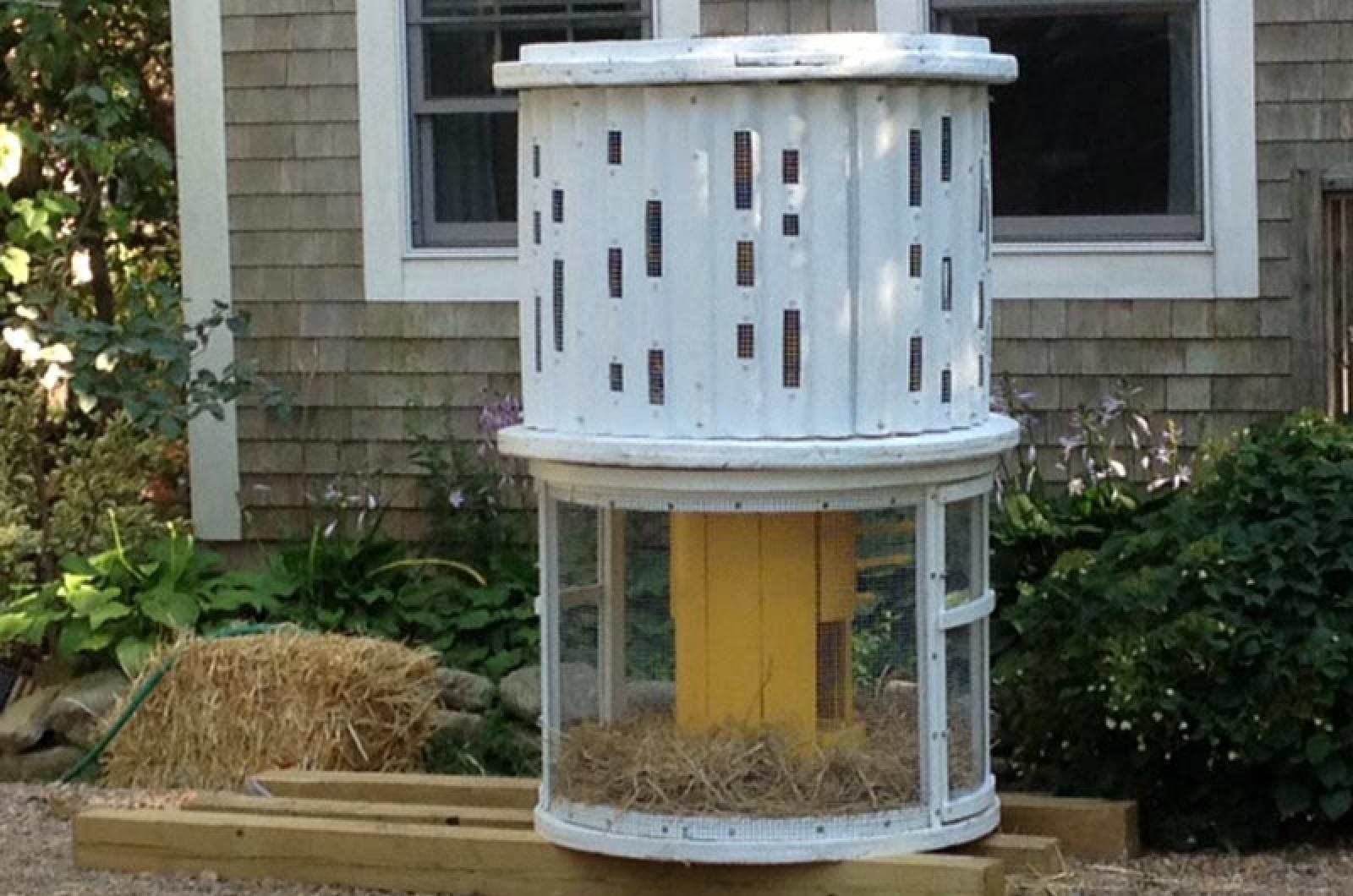It was hard to tell which came first in the hearts of Islanders last Sunday — the chicken or the egg. The Coop de Ville Tour sponsored by Slow Food Martha’s Vineyard offered the opportunity for an egg-centric brunch followed by tours of chicken operations on several farms around the Island. All the chicken love had a purpose, too, according to the people at Slow Food Martha’s Vineyard.
“This is a way to get to know your farmer, buy fresh products and come away knowing where your food comes from,” said Max King, treasurer of Slow Food Martha’s Vineyard and one of the organizers of the Coop de Ville tour.
The event began with a brunch and talk at the Grey Barn in Chilmark where Eric and Molly Glasgow and their family tend to a flock of 300 chickens of various breeds.
“It’s hard at first to tell if they’re male or female, you know,” said Jakie Glasgow, age eight. “The beaks are longer on the males. It’s just something I’ve learned.”
Jakie admitted he’s not an egg lover and said his brother hates eggs and milk. Jakie added that farming is number five on his list of what he wants to do when he grows up. In ascending order the top four possibilities are underwater scientist, baseball player, stay-at-home dad and actor. Though he may not turn out to be a farmer like his dad, Jakie has a few ideas about pecking order.
“Some roosters are mean but they are protectors of the hens,” he explained.
A stop at the Native Earth Teaching Farm, another of the chicken coops on the Coop de Ville tour, found Rebecca Gilbert talking about raising chickens. She and her husband Randy Ben David live in the same house her grandparents lived in and they raise Silkies, Guineas, Muscovies and more on their farm. Ms. Gilbert explained that her family doesn’t buy eggs or meat at the grocery store.
“Once you have raised your own, you get spoiled,” she said. “If I go out to breakfast, I order pancakes. The eggs at the store just aren’t gonna float your boat anymore. You’ll come to sneer at those pale store eggs after awhile.”
One of the most important aspects of raising chickens, Ms. Gilbert said, is to keep predators away. “You need to provide a raccoon-proof place for them to spend the night and the rest is fairly flexible.”
The Giordano’s Little Chicken Coop was another stop along the tour. The Giordano family decided to raise chickens almost five years ago and there’s no turning back now. Charlie and Mary Giordano’s daughter Bella was just seven when they decided to get a dozen chicks. Bella said you have to socialize chickens just like you might with a new puppy. They paid close attention to the chicks, keeping them warm and slowly allowing them to get used to the temperature, the coop and surrounding yard. Charlie built a little chicken coop, Mary explained, and the chickens freely graze around the yard, coming into the coop at dusk on their own.
“You don’t have to have a great big farm to keep chickens,” Mary said. “It’s been fun to have them around and they give us eggs. We have less bugs and spiders and our lawn is really nice.”
Charlie chimed in that the chickens are really beautiful and add a colorful element to their place.
“They’re wicked economical to keep, especially in the summer when they don’t eat much grain,” Charlie said. “If I were a hobo, I’d carry a chicken with me.”
Slow Food Martha’s Vineyard produced a small but handy primer on chickens and eggs with an explanation of breeds and how much they produce, how to build a coop and other useful information. Their website slowfoodmarthasvineyard.org is a good resource, or for direct questions email info@slowfoodmarthasvineyard.org.







Comments
Comment policy »